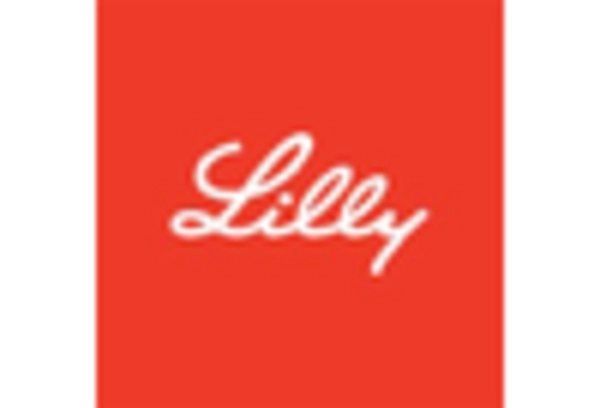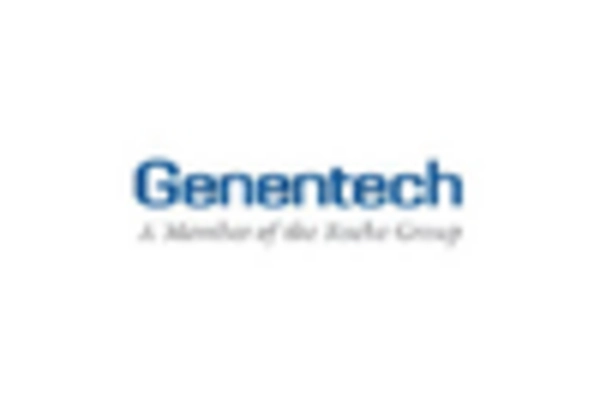Market Share
Protein Therapeutics Market Share Analysis
Protein therapies is a vibrant pharmaceutical sector that discovers and commercializes therapeutic proteins for a range of illnesses. As market rivalry rises, companies are utilizing strategic market share positioning to gain an edge. The percentage of a market's total sales a firm accounts for is its market share. Gaining and maintaining a large protein therapy market share is crucial for long-term growth and profitability. Businesses may grow market share and accomplish objectives by investing heavily in R&D. This involves discovering and developing novel protein-based therapies with unique mechanisms of action or higher efficacy than current treatments. Diversifying the product range to address more medical conditions is crucial. If they provide a variety of protein medicines, they may gain market share and suit patient needs. Pharmaceutical companies, research institutions, and biotechnology companies often interact to improve market placement. Partnerships allow organizations to share resources, acquire complementary technologies, and solve healthcare sector problems. To grow market share, one must typically think globally. Businesses enter new markets by establishing a strong presence in key regions and gaining regulatory permissions. This strategy gives them a competitive advantage and access to several patient demographics. Pricing strategies are crucial to market share positioning. Businesses may grow market share by using competitive pricing, especially if their products are as effective as traditional medicines. This approach targets healthcare providers, payers, and patients seeking cost-effective, efficient solutions. Patients should have priority access to protein treatments. Businesses might develop patient assistance programs, discounts, and reimbursement help to lower product prices. This benefits patients and increases market share. A successful marketing and branding strategy is essential for brand recognition and image. Businesses use promotional, instructional, and brand-building programs to differentiate their products and influence prescribing behavior. A changing market requires constant innovation. Businesses that can quickly adapt to trends, technology, and patient needs are more likely to gain and keep market share. This approach requires staying abreast of scientific advances and incorporating new technologies into product design. Maintaining product quality and following regulations is crucial to market share positioning. Businesses that consistently meet or exceed regulatory requirements gain the trust of healthcare professionals, patients, and regulatory bodies, strengthening their market position. Businesses can quickly fix issues and enhance their products by monitoring the market and asking consumers for input. A customer-focused approach fosters loyalty and may boost market share via repeat business and positive word-of-mouth.


















Leave a Comment